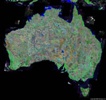A few quick links before I post on the government’s just announced energy strategy: cleaning out the tabs in my web browser…
- Professor Graham Harris of the University of Tasmania addresses the issues I raised in my “ecological overdraft†post a few days ago, in Sleepwalking Into Danger – an article for ScienceAlert: “It is time to admit how little we know and face the risks of planetary degradation – this goes way beyond climate change. Biodiversity isn’t just birds, primates and whales; it is planetary function and resilience.â€
- The Royal Society For The Protection Of Birds is planning [Guardian, BBC] to allow the sea to reclaim 728 hectares of coastal land in the Essex marshes on Britain’s east coast to restore habitat for wildlife – and as a pragmatic adaptation to rising sea levels. Could we see the same sort of thing here?
- The Andrill project – a sea floor drilling effort under the Ross Ice Shelf involving NZ and US scientists – is using nifty Apple computers, so Apple has posted an interesting perspective on the work being done. New drilling season starts soon.
- Brian Fallow in the Herald takes a look at the cost of carbon in the new ETS and speculates about ongoing impacts on the government’s accounts.
- Carbon emissions from shipping may be much higher than previously thought, according to The Independent (UK).
- German solar power company Conergy is planning a 500 turbine windfarm near Broken Hill in New South Wales. Meanwhile, BusinessWeek (US) profiles entrepreneur John O’Donnell, who has bought into Aussie scientist David Mills solar thermal designs, and plans to build a lot of generation at costs competitive with coal. With Silicon Valley money, and soon.
- The Dominion Post digs up some advice to government on dealing with “environmental refugeesâ€. NZ will probably want to help small Pacific nations, but refugees from the Asian megadeltas might be another matter.



